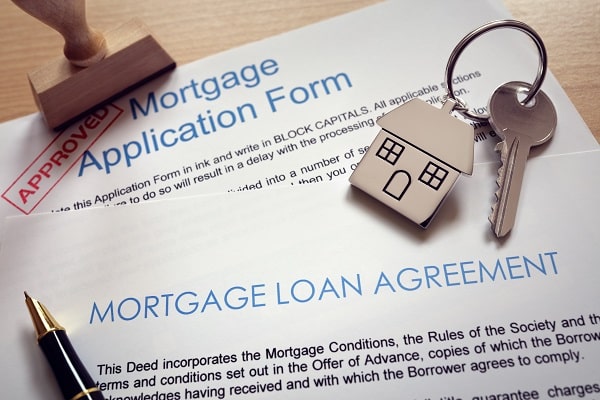Historically, the concept of mortgage dates back to ancient civilizations and remains vital in today’s economy. However, this significant financial transaction, involving sizeable sums of money, can sometimes become a breeding ground for dishonest practices. One such nefarious practice is mortgage fraud. This in-depth post seeks to shed light on the complex intricacies of mortgage fraud, taking you through a detailed exploration of its basic understanding, practical examples, prevention measures, and the role of regulatory authorities in managing this menace.
Decoding Mortgages: Understanding the Basics

A mortgage is a type of secured loan often utilized to finance the purchase of real estate. The defining feature of a mortgage is that the property in question is used as collateral. This means that if the borrower fails to fulfill their financial obligations—namely, making the loan payments—the lender reserves the right to take possession of the property.
In the process of obtaining a mortgage, there are several key terms and procedures one must understand. The principal refers to the initial amount borrowed or the outstanding balance that still needs to be repaid. Interest is the cost of borrowing money, calculated as a percentage of the loan, added over time. The mortgage term is the agreed-upon period in which the borrower promises to repay the debt.
Honesty, integrity, and transparency play a pivotal role in the mortgage process. Both parties involved—the lender and the borrower—should exhibit these qualities, ensuring they fully understand and agree to the terms of the contract. Any act of misrepresentation or concealing information can lead to adverse outcomes, including potential legal action.
Mortgage Fraud: What It Is and How It Occurs

Mortgage fraud is a type of white-collar crime encompassing acts of misrepresentation, misstatement, or omission associated with a mortgage loan application or transaction. These acts, intentionally deceptive, are then relied upon by a lender, causing potential harm or loss. It is a serious offense, often accompanied by stringent legal penalties and lasting ramifications for the parties involved.
Mortgage fraud presents itself in several forms, each with its unique mechanisms of deceit, and designed with the primary aim of defrauding either the lender or the borrower or, sometimes, both. The major types of mortgage fraud include income fraud, employment fraud, occupancy fraud, appraisal fraud, and identity theft, among others.
Detecting Mortgage Fraud: Recognizing The Signs

Recognizing potential signs of mortgage fraud forms the first line of defense against this fraudulent practice. One significant indicator of potential fraud is the presence of false or manipulated documentation. These falsified documents may range from fabricated income statements to fraudulent appraisals. Should any inconsistency, discrepancy, or anomaly be noticed in the paperwork, it is of utmost importance to delve into a thorough verification process.
Even slight alterations or questionable details could potentially point toward fraudulent practices. A deep sense of vigilance and a keen eye for detail can play a significant role in preventing mortgage fraud. Rapid property flipping, although not illegal or fraudulent in itself, can sometimes serve as a guide for mortgage fraud. If a property’s value appears to inflate unusually quickly or substantially without a legitimate or plausible reason, it warrants a closer inspection.
Unmasking Mortgage Fraud: Real-Life Examples

The prevalence and impact of mortgage fraud come to light when you explore real-life instances. A prime example is the financial crisis of 2008, where numerous banks, mortgage companies, and individuals were found guilty of contributing to mortgage fraud. This contributed to a near-collapse of the global economy and underscored the importance of mortgage fraud prevention. Fraudulent practices during this period included overstating borrowers’ income or assets, artificially inflating property values, and approving loans based on false or misleading information.
In another egregious mortgage fraud case, Lee Farkas, the former chairman of Taylor, Bean & Whitaker, masterminded one of the largest mortgage fraud schemes in American history. Farkas and his associates defrauded banks and investors out of billions of dollars, culminating in the company’s eventual bankruptcy in 2009. These examples serve to underscore the gravity and the extensive reach of mortgage fraud.
Legal Repercussions: The Price of Mortgage Fraud

Mortgage fraud, being a serious crime, comes with severe legal implications. Individuals found guilty of mortgage fraud can face a spectrum of penalties, including hefty fines, probation, and even imprisonment. The precise penalties vary depending on multiple factors, including the scale and severity of the fraud committed. In extreme cases, individuals can face up to 30 years in federal prison.
However, the impact of mortgage fraud extends beyond legal repercussions. The individuals involved may face a range of personal and professional consequences. These include but are not limited to the loss of professional licenses, severe damage to personal and professional reputation, and the long-term impact of having a criminal record.
Impact of Mortgage Fraud on Individuals and Society

The impact of mortgage fraud is far-reaching and extends well beyond the individuals directly involved in the fraudulent transaction. For starters, mortgage fraud can lead to higher loan costs for consumers. Lenders, in an attempt to mitigate the losses incurred due to fraud, may opt to increase interest rates. This additional cost is subsequently borne by the borrowers, making loans more expensive.
In addition, mortgage fraud has the potential to cause substantial instability in the housing market and the broader economy. A testament to this is the 2008 financial crisis, which was triggered in part by widespread mortgage fraud. The ensuing economic fallout was characterized by a severe recession, skyrocketing unemployment rates, and a sharp decline in consumer spending.
Mortgage Fraud Prevention: Measures and Strategies

The prevention of mortgage fraud calls for heightened vigilance from all parties involved in the mortgage process. For borrowers, this translates into providing accurate information and thoroughly checking all loan documents for accuracy. A proactive approach can help borrowers safeguard against fraud. Always question valuations that seem unusually high or low, and be wary of pressure to sign documents quickly or without a complete understanding.
On the part of lenders, prevention involves a thorough vetting process of all borrowers’ credentials and statements. Additionally, it is essential for lenders to stay abreast of the latest fraudulent practices and to implement robust detection and prevention systems.
Taking Action: Reporting Mortgage Fraud

If you find yourself suspecting a case of mortgage fraud or if you notice suspicious activity, it is of paramount importance to report it immediately. In the U.S., this can be done through the Federal Bureau of Investigation (FBI) or your local law enforcement agency. Prompt reporting can help mitigate potential damage and aid the broader fight against mortgage fraud. Your action can help protect others from falling victim to such practices and assist authorities in apprehending and prosecuting fraudsters.
Regulator Bodies: Guardians Against Mortgage Fraud

Regulatory bodies form an integral component in the battle against mortgage fraud. These organizations, such as the Consumer Financial Protection Bureau (CFPB) in the U.S., enforce laws pertaining to mortgages and serve to shield consumers from fraudulent practices. These agencies perform a multitude of functions, including conducting investigations, imposing penalties on guilty parties, and raising public awareness about the risks of mortgage fraud. They work closely with lenders to ensure adherence to proper standards and regulations, maintaining a healthy and trustworthy mortgage market.
Stay Vigilant In The Fight Against Mortgage Fraud!
Mortgage fraud, a grave crime with significant penalties, is detrimental not only to the parties directly involved but also to the larger society. It has the potential to destabilize the economy and negatively impact the housing market. Therefore, maintaining a keen sense of awareness and vigilance is key to preventing mortgage fraud. All parties involved in a mortgage transaction—be it borrowers, lenders, or regulatory bodies—must uphold the principles of honesty, transparency, and due diligence. Working collaboratively, you can help strive for a secure and fair mortgage market for all.


